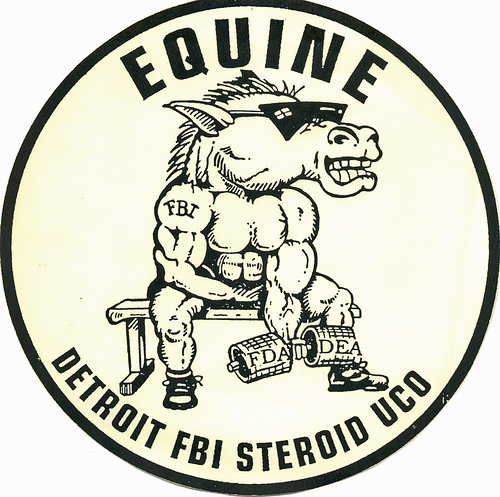Retired FBI agent Greg Stejskal recounts landmark Operation Equine steroid probe
Long before officials launched investigations into modern-day steroid scandals like BALCO, Greg Stejskal, a now-retired 30-plus year veteran of the FBI, spearheaded a landmark investigation into steroid distribution called Operation Equine, along with retired agent Bill Randall. The probe, from 1989-1993, led to over 70 steroid-related convictions, and generated plenty of big names, including links to baseball players Mark McGwire and Jose Canseco. Stejskal even warned MLB about its growing steroid problem in 1994, but the information fell on deaf ears. Five years ago, Stejskal recounted the incident to the Daily News, and four days before the now infamous congressional hearing that featured McGwire and Canseco, The News ran an exclusive story that detailed McGwire's steroid use. Two FBI sources confirmed that Curtis Wenzlaff, a dealer who was prosecuted in Equine, was McGwire's dealer. This is Stejskal's account of his investigation.
BY GREG STEJSKAL
Special Agent FBI/retired
A little over 20 years ago, I met with Bo Schembechler, Michigan's football coach, to discuss a concern of Bo's. I had come to know Bo through making presentations to the football team since 1982.
Bo's concern was the increasing use of steroids by football players. He was not only concerned about college players, but high school players that he was seeing in Michigan's summer instructional camp.
When I met with Bo, Mike Gittleson, the Michigan strength coach was also present. Bo knew that the sale and possession of steroids had recently been made a felony under federal law. He wanted to know what was being done to enforce the law. I told him I didn't know, but would find out.What I found out was that nothing was being done. I decided to propose a limited undercover (UC) operation. I pitched the proposal to the drug unit at FBI headquarters, which was less than enthusiastic. Ultimately I got approval from the Fraud Against the Government unit. (I argued that the steroid dealers were circumventing FDA regulations since steroids were a prescription drug.)
All during the course of our UC case, code named Equine, there was a reluctance to pursue our case. FBI administrators and prosecutors did not view steroids as being a serious problem. The case was originally planned to be only a local initiative.
But after starting slowly, it became an international case, resulting in over 70 convictions and the seizure of over 10 million dosage units of steroids. We worked extensively with the Royal Canadian Mounted Police (RCMP). Partially as a result of one of the cases in Canada, their Parliament changed the statutes governing steroids to include veterinary steroids.
One of the subjects we prosecuted was Curtis Wenzlaff, who was a supplier to several Major League Baseball players. The best venue to charge Wenzlaff would have been the Northern District of California, where he was residing. But that District's U.S. Attorney's office, in 1992, refused to prosecute him, saying they did not view steroid dealing as a serious offense. (Later that same District would prosecute the BALCO case. Apparently their view of steroids changed.)
In 1994, after the UC portion of our case had concluded, I shared the information we had learned from Wenzlaff regarding MLB with the Director for Security of MLB, Kevin Hallinan. Kevin indicated that he had some knowledge of the steroid problem, but because the players could not be tested, he did not think there was much they could do about it. About five years later, I arranged to have Wenzlaff debriefed by MLB.
All of us who were involved in Equine take pride in what we accomplished. We overcame many obstacles to develop an unprecedented UC operation that is is still the most successful case of its kind. I often wonder how things would have been different had MLB acted on our warning. (In 2005 MLB even denied we warned them, and they have never unequivocally admitted that we did warn them.)
Additionally,the New York Times has reported that the BALCO case was the first major federal initiative to target the illegal distribution of steroids. I like to think we pioneered the way for BALCO and other steroid cases. I also believe that people like Bo Schembechler and his strength coach, Mike Gittleson, who stood up to condemn steroids long before many people believed they were a problem, should be recognized.
I sent an E-mail to the New York Times a few weeks ago expressing my concerns, but haven't yet received a reply.
Source: http://www.nydailynews.com/blogs/iteam/retired-fbi-agent-greg-stejskal-recounts-landmark-operation-equine-steroid-probe-blog-entry-1.1631847

 thinksteroids.com
thinksteroids.com

 thinksteroids.com
thinksteroids.com

